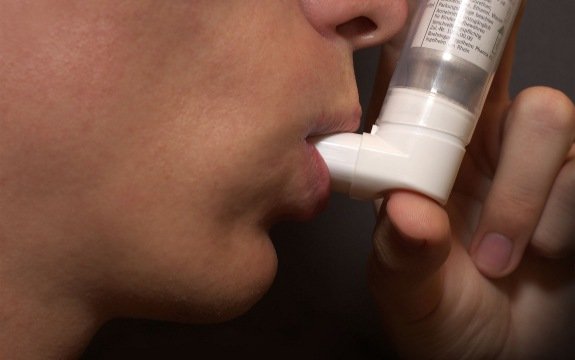Acetaminophen (Tylenol) Found to Increase Asthma Risk by up to 540%

 There are numerous causes for asthma, including environmental pollutants, natural airway constrictors like pollen and rag weed, as well as a genetic predisposition. But did you know that research suggests that the rise in asthma cases since the early 1980’s could be due to the use of acetaminophen found in products like Tylenol. Doctors stopped giving children aspirin for fevers and started giving them acetaminophen more commonly at this time.
There are numerous causes for asthma, including environmental pollutants, natural airway constrictors like pollen and rag weed, as well as a genetic predisposition. But did you know that research suggests that the rise in asthma cases since the early 1980’s could be due to the use of acetaminophen found in products like Tylenol. Doctors stopped giving children aspirin for fevers and started giving them acetaminophen more commonly at this time.
A paper published by Dr. Arthur Varner, who was a fellow in the immunology training program at the University of Wisconsin School of Medicine, has postulated that the switch to acetaminophen might have fueled the increase in asthma. The paper was published in The Annals of Allergy and Asthma Immunology in 1998.
His paper was the first in an onslaught of studies which have come to the same conclusion. There are more than 20 now which draw a connection between the use of acetaminophen and asthma. The most alarming discovery is that it takes less than a dose a month to cause an increased incidence of the ‘breathing disease.’’
Read: How to Prevent Asthma
Dr. John T. Mcbride sums up the evidence in his paper published in Pediactrics. He states:
“The epidemiologic association between acetaminophen use and asthma prevalence and severity in children and adults is well established.” McBride concludes that “Until future studies document the safety of this drug, children with asthma or at risk for asthma should avoid the use of acetaminophen.”
It couldn’t be any clearer that yet another pharmaceutical drug has put our children at risk for a disease that has grown exponentially since 1980. Ambulatory care for asthma cases has increased drastically since early 1990. The CDC attributes some of this to climate and air quality, but it seems there are other, more obvious reasons for the huge jump in just the past several decades.
With research coming out drawing new connection or strengthening existing ones, it becomes clearer that we should be shying away from the pharmaceuticals and moving toward natural alternatives.
Why take asthma-causing acetaminophen when there are numerous natural pain relievers? And with asthma drugs killing more than asthma itself, it becomes even more clear that we should be using things like khella to tackle asthma issues naturally.

A correction. Advil is a trademarked name for ibuprofen. It does not contain acetaminophen. Also, most of the world outside of North America still refers to acetaminophen with the chemical synonym, paracetamol. Might be a good idea to re-edit that prominently into your article. (former chemist 🙂
“It couldn’t be any more clear”?!?! I don’t think it’s clear at all. Correlation does not equal causation. In my research into vaccines for my child, I’ve found more proof that vaccines and other toxins (such as pesticides) cause increase in asthma. The amount of vaccines given to children and use of pesticides these days as opposed to before the early 80’s has drastically changed. Might the correlation with asthma and Tylenol be due to a correlation in children who have their immune systems suppressed by toxins, leading them to be more likely to spike a fever or get sick and use Tylenol? Therefore creating a correlation, but not causation. I’m not saying Tylenol is safe or that it’s not a cause of increase. I’m saying this is a very weak argument.